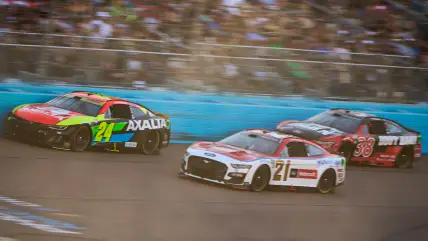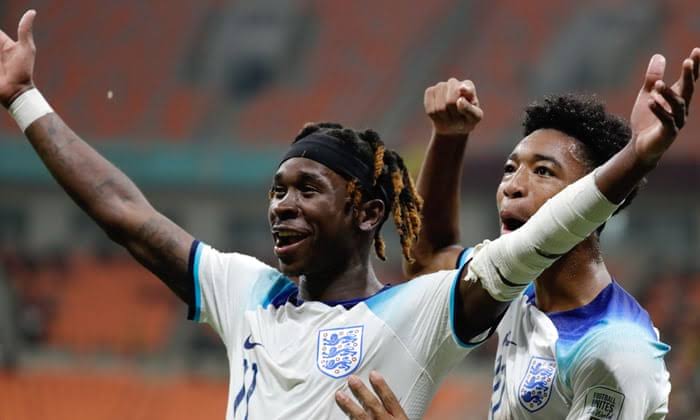Everything to Know About the NASCAR Antitrust Lawsuit
NASCAR finds itself in the midst of a high-stakes legal battle, as 23XI Racing and Front Row Motorsports have filed a federal antitrust lawsuit challenging the organization’s control over the sport. Here’s a detailed breakdown of the case, the context, and its potential implications.
The Charter Negotiations and Lawsuit Origins
After two years of negotiations, 13 of 15 Cup Series teams agreed to extend the charter system through the 2025–2031 broadcast rights deal. However, 23XI Racing, co-owned by Denny Hamlin and Michael Jordan, and Front Row Motorsports, owned by Bob Jenkins, refused to sign, citing unresolved concerns.
Key negotiation points included:
- Revenue distribution: Teams sought a larger share of the pie. Minimum revenue per charter increased from $5M to $8.5M, though teams pushed for closer to $10M.
- Charter permanence: Teams wanted charters to function like permanent franchises, but NASCAR resisted.
- Financial struggles: Teams claimed they were operating at a loss, needing sponsorships to break even.
- Intellectual property rights: Disputes arose over media content production and revenue from new streams like sports betting.
- Governance: Teams demanded a greater say in rule changes and financial structures.

Some team owners expressed discontent after signing, with Richard Childress saying, “I didn’t have a choice. … I’ve got to take care of my team.”
The Antitrust Lawsuit
Filed on October 2 in North Carolina, the lawsuit alleges NASCAR is monopolizing the stock car racing market. 23XI and Front Row argue that NASCAR’s control over the series, tracks, and mandated suppliers stifles competition. Key complaints include:
- Restricting teams from competing in other series without approval.
- Requiring the use of NASCAR-specified parts for NextGen cars.
- Disproportionate revenue distribution under the charter agreement.
Michael Jordan emphasized fairness, saying, “I think everybody should have an opportunity to be successful. … My voice is saying that it hasn’t been happening.”
NASCAR’s Defense
NASCAR dismissed the lawsuit as baseless, accusing the teams of using litigation to secure better contract terms. It pointed to precedent from the Kentucky Speedway v. NASCAR case, which ruled NASCAR was not a monopoly.
In filings, NASCAR argued:
- Revenue increases: Charter values have risen, and teams receive significant compensation.
- Market competition: Other stock car series, like CARS Tour, are available.
- Essential services: NASCAR is not legally obligated to maintain “premier teams” in the Cup Series.
NASCAR claims the lawsuit stems from dissatisfaction with the deal, noting 13 teams signed the agreement. “Plaintiffs have filed a meritless suit … to extort more favorable contract terms,” NASCAR stated.
The Preliminary Injunction
As part of the lawsuit, 23XI and Front Row requested a preliminary injunction to maintain their charter status during litigation. Without this, they risk becoming “open teams” without guaranteed starting spots or revenue.
NASCAR counters that the harm is speculative and can be calculated for compensation if the teams win. The sanctioning body also blocked the transfer of charters from Stewart-Haas Racing to the two teams, arguing the transfers are contingent on signing the new agreement.
Legal Teams and Judge
- 23XI and Front Row: Represented by Jeffrey Kessler, known for securing NIL rights for NCAA athletes and equal pay for the US Women’s National Team.
- NASCAR: Represented by Chris Yates, whose clients include UFC and the ACC.
- Presiding Judge: Kenneth D. Bell, appointed in 2019.
Potential Outcomes
The lawsuit could take years to resolve, with possibilities including:
- Teams’ success: NASCAR might be forced to sell assets or grant more team control.
- NASCAR’s victory: The two teams might lose charter privileges or settle under existing terms.
A settlement could occur anytime, but the broader implications for NASCAR’s governance model and financial structure hang in the balance.
Timeline and Next Steps
With the 2016–2024 charter agreement expiring, a resolution is needed before the new season begins. For now, the charters remain in limbo as the court hears arguments.
Whether this lawsuit redefines NASCAR’s power structure or maintains the status quo, it represents a pivotal moment in the sport’s history. Denny Hamlin summed it up: “We just want to break even.”



